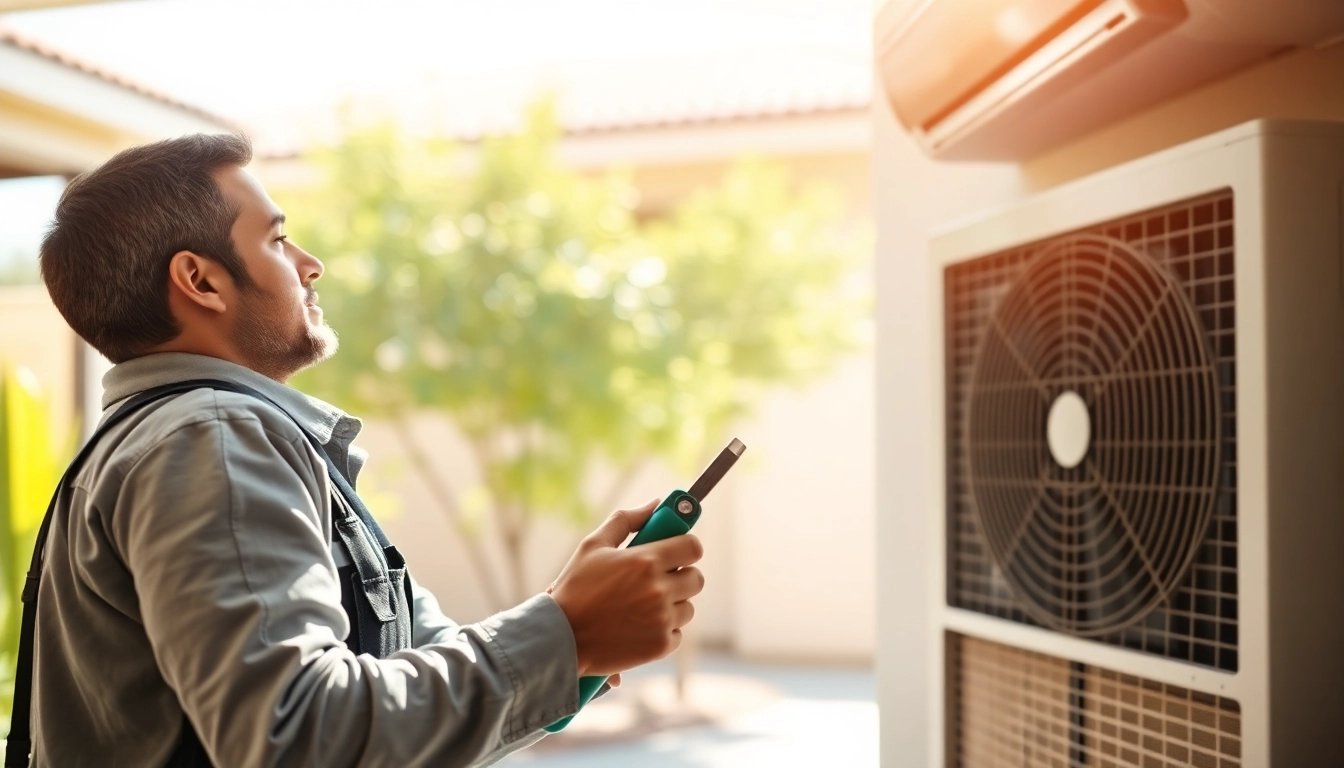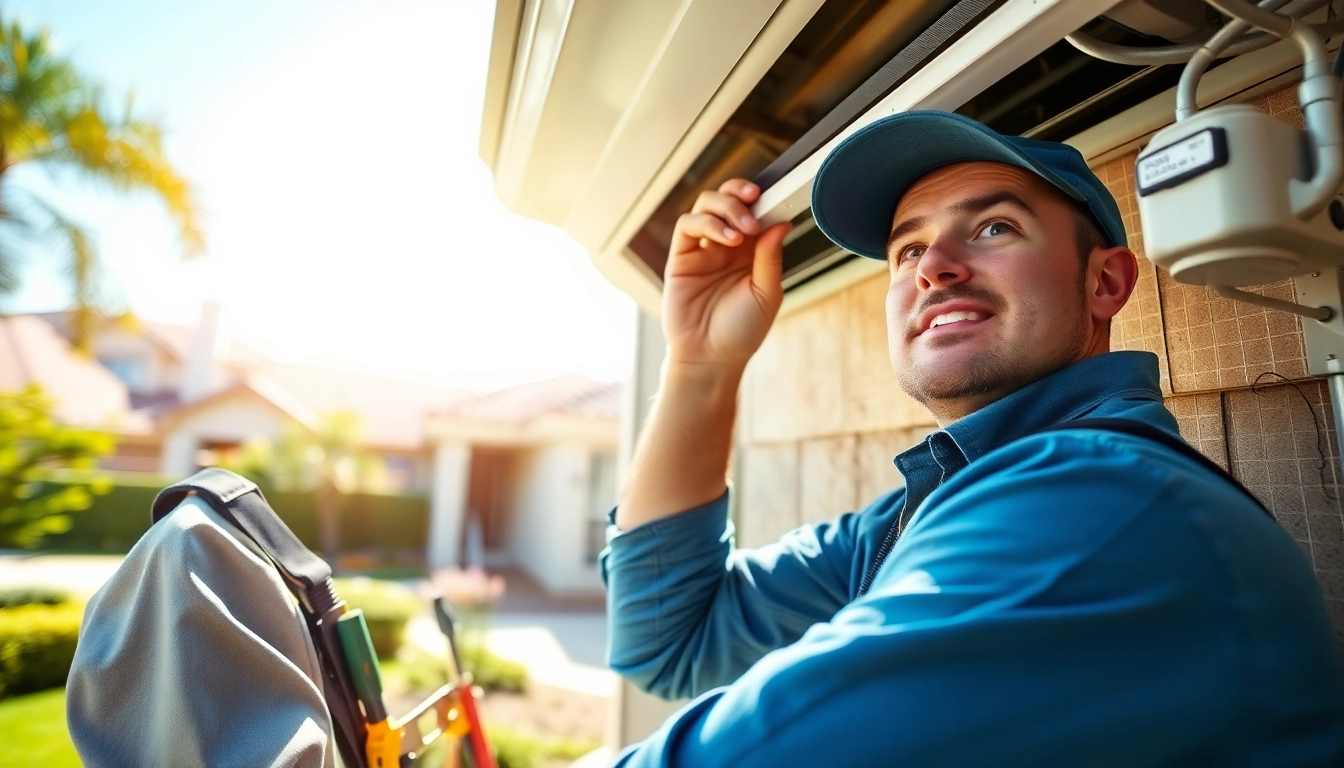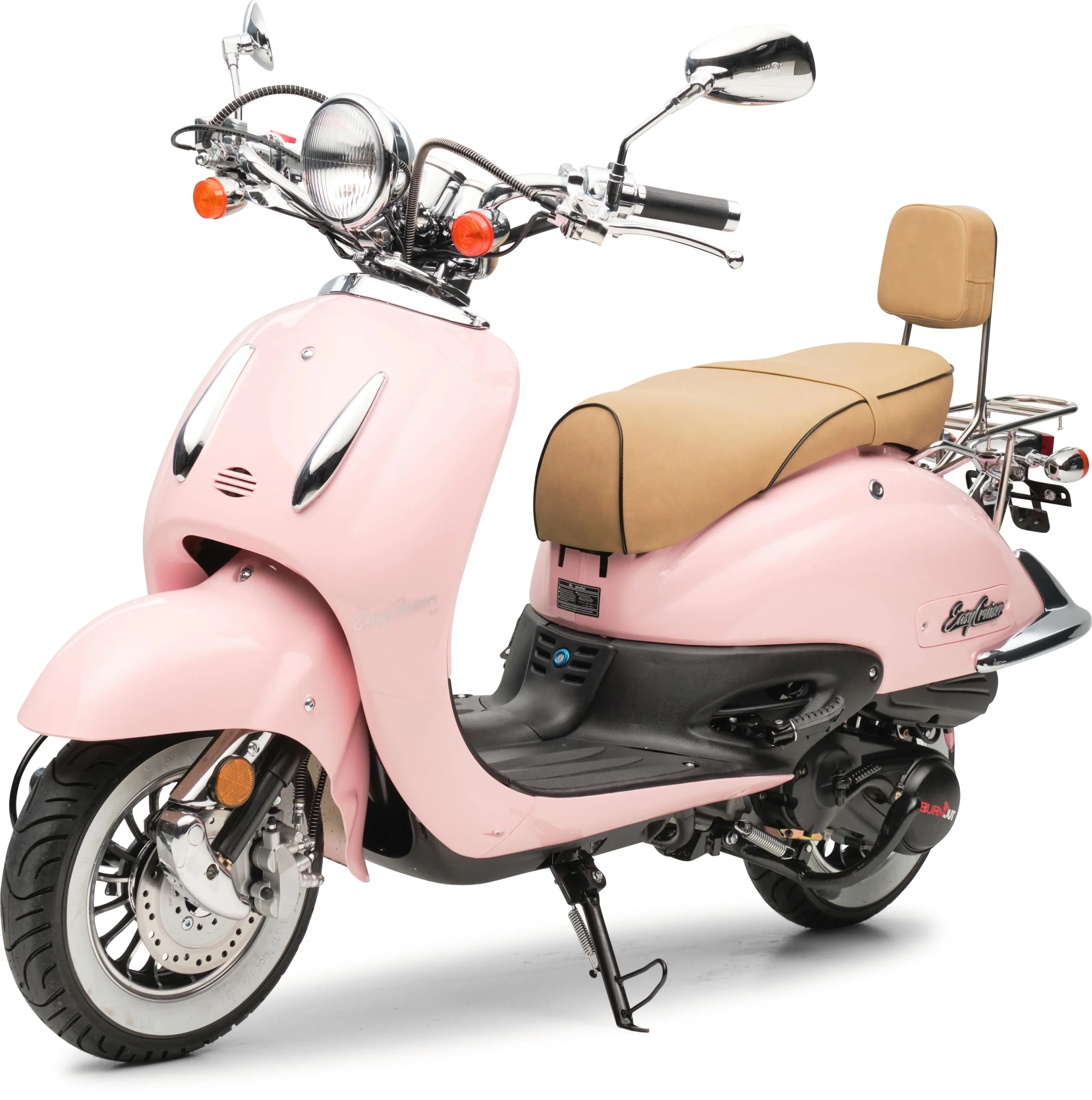Understanding Scottsdale AC Systems
When it comes to keeping your home cool in the scorching Arizona heat, understanding scottsdale ac systems is essential. Having a reliable air conditioning system is not just about comfort; it’s also about maintaining a livable indoor environment and protecting your property from heat damage. In this section, we will delve into the various types of AC systems, their key features, and how to choose the right one for your specific needs.
Types of AC Systems Available
In Scottsdale, several types of air conditioning systems are commonly used, each with its own advantages and appropriate use cases:
- Central AC Systems: These systems cool air at a central location and distribute it through ducts to various rooms. They are ideal for larger homes and can be very efficient if properly maintained.
- Mini-split Systems: These ductless systems are excellent for homes without existing ductwork or for those who want to control temperatures in individual rooms. They are becoming increasingly popular due to their energy efficiency and the fact that they can be installed without major renovations.
- Window Units: These are less common for whole-home cooling but are a good choice for single rooms. They are more affordable upfront but may not provide the same level of cooling or efficiency as central or mini-split systems.
- Portable Air Conditioners: These are movable units that can be used to cool specific areas. They are usually less efficient than the other options but can be suitable for short-term use or additional cooling needs.
Key Features of Scottsdale AC Units
When selecting an AC unit, certain features can significantly enhance performance, efficiency, and user experience:
- SEER Ratings: The Seasonal Energy Efficiency Ratio (SEER) measures the cooling output compared to energy consumed. Higher SEER ratings indicate better efficiency, which can translate into lower energy bills.
- Smart Thermostats: Modern units often come with the option to install smart thermostats to optimize temperature control and energy use, allowing homeowners to adjust settings remotely.
- Variable Speed Compressors: These compressors can adjust their speed based on the cooling demand, leading to more consistent temperatures and energy savings.
- Air Purification Features: Many newer models include built-in air filters or purifiers that can improve indoor air quality alongside cooling.
Choosing the Right AC for Your Home
Choosing the right AC system for your home in Scottsdale involves considering several factors:
- Home Size: Larger homes typically require systems with greater cooling capacity, so it’s important to assess the specific cooling needs of each area.
- Climate Considerations: Given Scottsdale’s desert climate, an efficient cooling system is crucial for optimal indoor comfort year-round.
- Cost: Balancing initial investment with long-term energy savings is key. While pricier systems may be more efficient long-term, budget-friendly options might better suit short-term needs.
- Installation and Maintenance: Consider the costs associated with installation and ongoing maintenance. It’s advisable to choose a system that is easy to maintain and has accessible service options.
Common Issues with Scottsdale AC
Regardless of the type of AC system, issues can arise. Knowing how to identify potential problems early can prevent costly repairs and ensure your unit runs efficiently.
Signs Your AC Needs Repair
Be vigilant about your AC system’s performance. Here are some signs that may indicate the need for repair:
- Inconsistent Cooling: If some rooms are hotter or colder than others, it may indicate an issue with airflow, ductwork, or the AC unit itself.
- Strange Noises: Unusual sounds, such as grinding or banging, may indicate mechanical problems that need immediate attention.
- Increased Energy Bills: A sudden spike in energy costs without a change in usage often signifies that your AC is working harder due to inefficiencies.
- Foul Odors: Unpleasant smells could indicate electrical issues or mold growth within the unit, both of which require immediate inspection.
Preventive Maintenance Tips
Regular maintenance is crucial to extend the lifespan of your AC and optimize its efficiency. Here are some preventative maintenance tips:
- Regular Filter Changes: Replace or clean air filters every month or as recommended to ensure proper airflow and reduce strain on the system.
- Annual Inspections: Schedule professional inspections at least once a year to check for potential issues and clean components.
- Cleaning Condenser Coils: Keep the outdoor unit clean from debris and dirt, as this can significantly affect performance and efficiency.
- Check Thermostat Settings: Ensure your thermostat is functioning correctly and is set to appropriate temperatures for energy efficiency.
Emergency Services for Scottsdale AC
Sometimes, despite all efforts, your AC system may fail unexpectedly. Understanding what to do in emergencies can help mitigate discomfort:
- Stay Calm: In the event of a breakdown during peak summer months, remain calm and assess the situation before calling for help.
- Document the Issue: Note any unusual sounds, smells, or performance issues to help technicians diagnose the problem faster.
- Know Your Provider: Have a reliable HVAC service on speed dial for emergencies. Make sure they offer 24/7 service to minimize downtime.
Energy Efficiency and Scottsdale AC
Energy efficiency is a critical factor for Scottsdale residents managing high cooling costs. Understanding what contributes to energy efficiency can enhance your overall experience.
Understanding SEER Ratings
The SEER rating is essential for evaluating the energy efficiency of air conditioning systems. Here’s what you need to know:
- Definition: SEER stands for Seasonal Energy Efficiency Ratio, a measure of cooling output (in BTUs) during a typical cooling season divided by the total energy consumed (in watt-hours).
- Efficiency Scale: Generally, a SEER rating above 14 is considered efficient, while ratings above 20 are exceptional.
- Impact on Costs: Higher SEER ratings often lead to lower utility bills, but they typically come with higher upfront costs. Consider the long-term savings against initial investment when purchasing.
How to Improve AC Efficiency
To enhance the efficiency of your AC system, consider the following tips:
- Utilize Ceiling Fans: Ceiling fans can help circulate cool air, reducing the burden on your AC unit.
- Seal Ducts: Ensure that your ductwork is sealed properly to prevent cooled air from escaping through gaps.
- Install Window Treatments: Use shades and curtains to block out sunlight during peak hours, keeping your home cooler.
- Regular Maintenance: Consistently follow the maintenance tips previously mentioned to keep your system in optimal condition.
Benefits of Energy-efficient Units
Investing in energy-efficient AC units yields significant benefits:
- Lower Utility Bills: Increased efficiency leads to reduced monthly energy costs, which can save money over time.
- Environmental Impact: A more efficient system helps decrease greenhouse gas emissions, contributing to a healthier planet.
- Increased Comfort: Newer systems provide more consistent cooling and humidity control, enhancing indoor comfort.
- Greater Home Value: Energy-efficient features are frequently seen as desirable by home buyers, potentially increasing property value.
Cost Considerations for Scottsdale AC Services
Understanding the financial implications of acquiring and maintaining an AC system is crucial for Scottsdale homeowners. This section breaks down various cost considerations associated with AC services.
Factors Influencing AC Installation Costs
Several factors can influence the cost of installing a new AC system:
- System Type: The type of system (central, mini-split, etc.) plays a significant role in determining installation costs.
- System Size: Larger systems designed for bigger homes will generally cost more than those designed for smaller spaces.
- Ductwork Condition: If existing ducts must be repaired or replaced, costs will increase significantly.
- Labor Costs: Variations in local labor rates and the complexity of the installation process can further influence costs.
Average Repair Costs for Scottsdale AC
The costs associated with AC repairs can vary widely based on the type of repair needed. Common average costs include:
- Minor Repairs: Simple repairs such as replacing a capacitor or cleaning coils typically range from $100 to $300.
- Major Repairs: More extensive repairs, such as replacing a compressor or evaporator coil, can range from $500 to over $1,500.
- Annual Maintenance: Routine maintenance typically costs between $100 and $200, depending on the services provided.
Financing Options Available
Fortunately, several financing options can help homeowners manage the costs of purchasing and maintaining an AC system:
- Personal Loans: Consider using personal loans which often offer flexible terms and rates for home improvements.
- Credit Cards: Some homeowners may opt for credit cards that provide introductory offers or rewards for home-related purchases.
- HVAC Financing Plans: Many HVAC companies offer in-house financing or partnerships with financial institutions to facilitate affordability.
Choosing the Right HVAC Service in Scottsdale
As important as selecting the right air conditioning system is finding a reputable HVAC service provider in Scottsdale. Here’s how to make the right choice.
Certifications and Qualifications to Look For
When evaluating HVAC service providers, consider the following certifications and qualifications:
- Licensing: Ensure the contractor holds the proper licenses and permits required by state and local laws.
- Insurance: A reputable company should have liability insurance to protect you in case of accidents during service.
- Professional Affiliations: Membership in professional associations (such as NATE or ACCA) can showcase a commitment to quality and continued education.
Customer Reviews and Testimonials
One of the best ways to gauge the reliability and quality of an HVAC service is through customer reviews:
- Online Reviews: Check platforms like Google and Yelp to read customer experiences and ratings.
- Word of Mouth: Ask friends, family, or neighbors for recommendations based on their experiences.
- Case Studies: Some reputable HVAC companies offer case studies or success stories that highlight their skills and customer satisfaction.
Key Questions to Ask Potential Contractors
Before hiring an HVAC service provider, ask these essential questions to ensure they are the right fit for your needs:
- What is your experience with my specific AC system?
- Can you provide an itemized estimate for the work?
- What warranties do you offer on your services and products?
- How do you handle maintenance and ongoing support after installation?













Leave a Reply